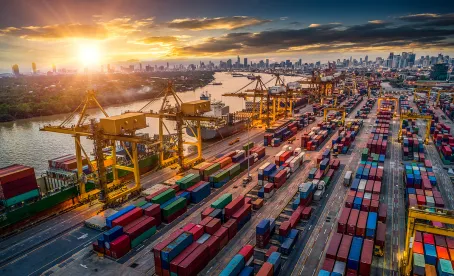-
House Passes Compromise Defense Spending Bill, Reflects China Focus
The House voted 350-80 to pass the compromise defense authorization bill on Thursday. The 4,000-plus page package would authorize $857.9 billion in fiscal 2023 defense spending, $45 billion more than requested by the White House. The Senate is expected to consider the legislation next week.
Why it matters: The proposed boost to defense spending underscores bipartisan concern about strategic competition with China. To note, China is mentioned by name 268 times in the bill, exemplifying that Congress is willing to deploy its national security apparatus to monitor and counter China’s economic aspirations, despite White House concerns.
Two notable provisions:
-
Secs. 5501-5540—Taiwan Enhanced Resilience Act (TERA), which refines the Taiwan Policy Act. The TERA provides up to $10 billion in security assistance over the next five years to Taiwan, creates a new security loan authority, supports for Taiwan’s participation in international organizations, creates a Taiwan Fellowship Program, and promotes cooperation on public health issues between the U.S. and Taiwan.
-
Sec. 5949. Restrictions on the usage of semiconductors by the U.S. government from certain Chinese chipmakers allegedly linked to the Chinese Communist Party and Chinese military.
-
House Republican Leader Announces China Select Committee Leadership
Rep. Mike Gallagher (R-WI), member of the House Permanent Select Committee on Intelligence and Ranking Member of the House Armed Services Committee’s Subcommittee on Military Personnel will chair the new China Select Committee.
Between the lines: McCarthy previously announced the creation of a select committee to investigate China if Republicans were to take back the House in the November midterm elections. Rep. Gallagher stands out as one of the top China hawks in Congress, and in the 117th Congress, he filed the largest number of bills on China-related issues.
-
Roundup: U.S.-EU Trade Technology Council Meeting
On December 5, E.U. and U.S. officials met for the third iteration of the Trade and Technology Council (TTC). The Council reached an agreement to implement an early warning system to mitigate semiconductor supply chain disruptions. They also agreed to share information about the domestic subsidies provided to the sector, with the goal of avoiding “subsidy races and market distortions” and ensuring “a more resilient, sustainable, and innovative semiconductors supply chain.”
Why it matters: In the joint statement, the group said it will work to understand the impact of China’s “non-market policies and practices” on U.S. and EU medical device companies and explore “policy tools” which could address those concerns. The two sides also highlighted their “deepened” cooperation in foreign investment screening to prevent China and other potential adversaries from gaining access to sensitive technology or grabbing a foothold in a critical sector.
-
In Case You Missed It
-
The U.S. announced sanctions under the Global Magnitsky Act on 170 largely Chinese entities based on alleged human rights abuses and illegal fishing in the Pacific;
-
The U.S. Department of Commerce found that some solar cells and modules exported from Southeast Asian countries used wafers produced in China in violation of U.S. tariffs;
-
The Chinese Ministry of Commerce (MOFCOM) has begun to help its domestic companies through end-use checks by the U.S., which are required by the U.S. Department of Commerce prior to removing firms from its Unverified List (UVL); and
-
The Global Tech Security Commission, with a goal to countering China’s “techno-authoritarianism,” announced the naming of six bipartisan Honorary Co-Chairs: Sens. Jeanne Shaheen (D-N.H.), Joni Ernst (R-IA) and Bill Hagerty (R-TN), and Reps. Michael McCaul (R-TX-10), Raja Krishnamoorthi (D-IL-8) and Lori Trahan (D-MA-03).
-
From the Biden Administration: Notable Quotables
-
Gina Raimondo, U.S. Secretary of Commerce, said the administration is “continuing to work daily, weekly, talking with the Netherlands government, and is optimistic that [the U.S. and the Netherlands] will be able to align” on stricter export controls.
-
Alan Estevez, U.S.Under Secretary of Commerce for Industry and Security, said U.S. allies agree on the rationale for stricter export controls: “to stop China from building high-end chips for use in their military and surveillance applications.”
-
Janet Yellen, U.S. Secretary of the Treasury, said that she expects deeper engagement ahead with China, and is open to a trip to the country.
-
Kurt Campbell, White House Coordinator for the Indo-Pacific, said elements of China’s “wolf warrior” diplomacy in recent years has “backfired.”






 />i
/>i
